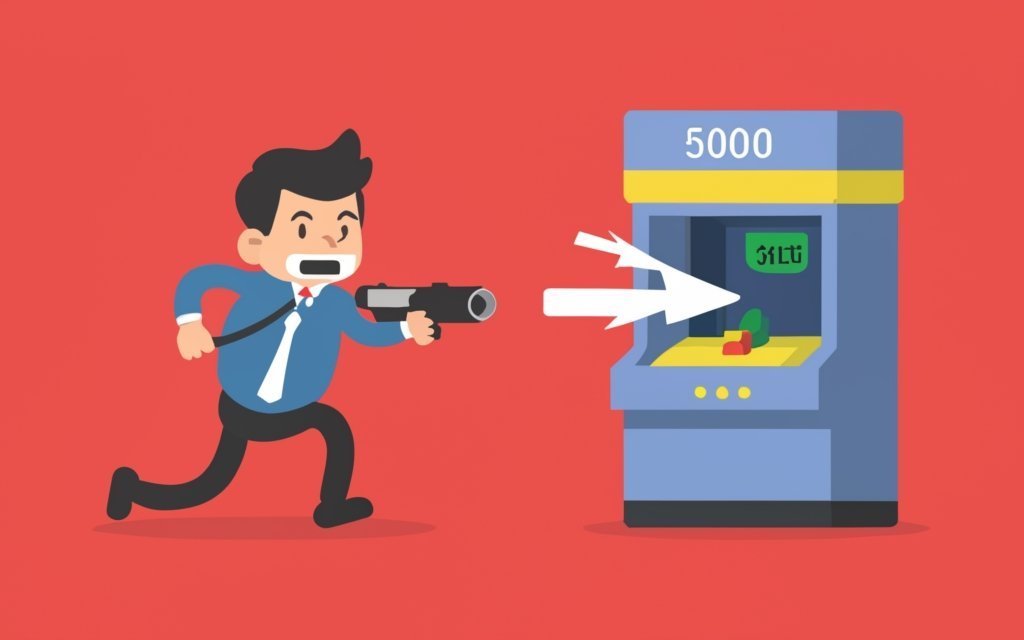The world of video games has evolved significantly over the years, with advancements in technology, graphics, and gameplay mechanics. However, with this evolution has come a new set of ethical issues that are largely unexplored.
One such issue is the interplay between video game violence and predatory monetization. This article aims to unveil the complexities of this interplay, shedding light on the ethical implications and potential consequences for players, developers, and society at large.
Drawing on a qualitative survey of players, we will delve into the problematic aspects of in-game purchases, focusing on the perceived unfairness, aggressiveness, and misleading nature of certain monetization techniques 10. We will explore how these techniques can create a sense of disconnect between the player and the game experience, and the potential negative impacts on player behavior and attitudes.
In addition, we will discuss the role of game violence in shaping societal perceptions and attitudes, the impact of video game violence on aggression and cyberbullying behavior, and the potential influence of video game violence on criminal behavior.
We will also examine the role of video game violence in shaping moral development and neurocognitive mechanisms, and the potential long-term effects of violent video games on these aspects.
Lastly, we will discuss the role of ethics in video game design, the need for regulation and self-regulation, and the potential solutions to the issues discussed. This article aims to provide a comprehensive overview of the complexities of gaming ethics, offering insights that can inform future research and policy decisions in the field. So lets fully dive into The Dynamics of Video Game Violence and Microtransactions.
Exploring the Impact: Pixels and Purchases: The Dynamics of Video Game Violence and Microtransactions.
The Influence of Violence on Video Game Players.
Video games, especially those with violent content, have been shown to have a significant impact on their players. A study conducted by Tobias Greitemeyer found that players of violent video games can have a long-term impact on their social network.

This means that the aggressive behavior exhibited by the players can influence their friends, leading to an aggression cycle. This cycle is further fueled by the fact that players of violent video games may influence their friends to also play violent video games, thereby increasing the overall level of aggression in the social network.
This is a clear demonstration of how video game violence can have real-world implications, affecting not just the player but also their social environment.
Virtual Reality and the Perception of Violence.
Virtual Reality (VR) presents a unique environment where players can interact with a digital world in a highly immersive manner. This immersive experience, often referred to as “presence,” can lead to a higher level of engagement compared to traditional video games.
However, this immersive environment can also be used to depict violence in a more realistic and sensory-rich manner. This can potentially lead to a heightened perception of violence among players, which could have real-world implications.
For instance, VR experiences can allow users to experience firsthand the gruesome reality of surviving in a warzone or living life as a refugee. These experiences, while not typical video games, can significantly impact the player’s perception of violence.
The Impact of Microtransactions on Video Game Players.
Microtransactions, where players can make in-game purchases to gain an advantage, are a common feature in many video games. These purchases can range from cosmetic items to game-changing upgrades, making them a significant source of revenue for game developers.
However, the use of microtransactions can also lead to a pay-to-win situation, where players have to spend real money to succeed in the game. This can lead to a less enjoyable gaming experience and can potentially contribute to addiction among players.
The Effect of Microtransactions on Video Game Development.
Microtransactions are not just a source of revenue for game developers but also a significant factor in video game development. Developers often design games to encourage microtransactions, which can lead to a less enjoyable gaming experience for players.
This is because the game is often designed in such a way that players need to make in-game purchases to progress or succeed. This can lead to a less enjoyable gaming experience and can potentially contribute to addiction among players.
The Role of Microtransactions in Shaping Video Game Culture.
Microtransactions play a crucial role in shaping video game culture. They have become a significant part of the gaming industry, leading to a shift in the way games are developed and played. The widespread use of microtransactions has led to a culture where players are often encouraged to make in-game purchases to succeed.

This has led to a shift in the gaming experience, with games often designed in such a way that players need to make in-game purchases to progress or succeed. This has led to a culture where the enjoyment of playing a game is often secondary to the need to make in-game purchases.
The Role of Loot Boxes in Microtransactions.
Loot boxes, a type of microtransaction, have been found to pose a greater risk for addiction than other types of microtransactions. The correlation between loot box expenditure and gambling disorder severity has been found to range from .17 to .35, indicating a significant association.
This is particularly concerning as loot boxes allow players to open boxes to gain in-game items, which can lead to an addictive behavior if players feel compelled to spend real money to obtain these items.
The Impact of Microtransactions on Gambling Disorder.
Microtransactions, including loot boxes, have been found to be associated with gambling disorder. The correlation between microtransaction expenditure and gambling disorder severity has been found to be positive, indicating that players who spend more on microtransactions are more likely to exhibit symptoms of gambling disorder. This is a significant concern as it indicates that microtransactions can contribute to addiction and potentially other mental health issues.
The Relationship between Microtransactions and Gaming Disorder.
Microtransactions, particularly loot boxes, have been found to be associated with gaming disorder. The correlation between loot box expenditure and gambling disorder severity has been found to be positive, indicating that players who spend more on loot boxes are more likely to exhibit symptoms of gambling disorder. This is a significant concern as it indicates that microtransactions can contribute to addiction and potentially other mental health issues.
The Effect of Microtransactions on the Gaming Experience
Microtransactions can significantly affect the gaming experience. They can make the game more engaging and fun, but they can also make the game less enjoyable if they encourage a pay-to-win situation. This can lead to a less enjoyable gaming experience and can potentially contribute to addiction among players.
The Role of Microtransactions in the Video Game Industry.
Microtransactions play a crucial role in the video game industry. They are a significant source of revenue for game developers and are often used to encourage players to spend more money on the game. This can lead to a less enjoyable gaming experience for players and can potentially contribute to addiction among players.
The Impact of Microtransactions on the Video Game Culture.
Microtransactions have a significant impact on the video game culture. They have become a part of the gaming industry and have led to a shift in the way games are developed and played. The widespread use of microtransactions has led to a culture where players are often encouraged to make in-game purchases to succeed.
The Effect of Microtransactions on Video Game Development.
Microtransactions are not just a source of revenue for game developers but also a significant factor in video game development. They are often used to encourage players to spend more money on the game, which can lead to a less enjoyable gaming experience for players. This can lead to a less enjoyable gaming experience and can potentially contribute to addiction among players.
The Role of Microtransactions in Shaping Video Game Culture.
Microtransactions play a crucial role in shaping video game culture. They have become a significant part of the gaming industry, leading to a shift in the way games are developed and played. The widespread use of microtransactions has led to a culture where players are often encouraged to make in-game purchases to succeed.
The Impact of Microtransactions on Video Game Players.
Microtransactions, where players can make in-game purchases to gain an advantage, are a common feature in many video games. These purchases can range from cosmetic items to game-changing upgrades, making them a significant source of revenue for game developers.

However, the use of microtransactions can also lead to a pay-to-win situation, where players have to spend real money to succeed in the game. This can lead to a less enjoyable gaming experience and can potentially contribute to addiction among players.
The Effect of Microtransactions on Video Game Development.
Microtransactions are not just a source of revenue for game developers but also a significant factor in video game development. Developers often design games to encourage microtransactions, which can lead to a less enjoyable gaming experience for players.
This is because the game is often designed in such a way that players need to make in-game purchases to progress or succeed. This can lead to a less enjoyable gaming experience and can potentially contribute to addiction among players.
The Psychology Behind Microtransactions.
Microtransactions are rooted in human psychology. Game designers understand what drives people to tap the button and spend 99 cents, and they capitalize on it. The growth in the popularity of games with microtransactions isn’t a coincidence.
Many games use loss aversion to encourage spending. The idea behind loss aversion is that players would rather enjoy the satisfaction of winning rather than losing. This goes a long way toward leading players to impulse buying.
The crux of a player’s decision to pull the trigger on a micropayment centers on not wanting to lose the game. The belief that players can continue to win with the item they acquired drives them to pay.
The Impact of Microtransactions on Mental Health.
Microtransactions, particularly loot boxes, have been found to be associated with gaming disorder. The correlation between loot box expenditure and gambling disorder severity has been found to be positive, indicating that players who spend more on loot boxes are more likely to exhibit symptoms of gambling disorder. This is a significant concern as it indicates that microtransactions can contribute to addiction and potentially other mental health issues 4.
The Role of Microtransactions in the Gaming Experience.
Microtransactions can significantly affect the gaming experience. They can make the game more engaging and fun, but they can also make the game less enjoyable if they encourage a pay-to-win situation. This can lead to a less enjoyable gaming experience and can potentially contribute to addiction among players 3.
The Impact of Microtransactions on the Gaming Industry.
Microtransactions play a crucial role in the video game industry. They are a significant source of revenue for game developers and are often used to encourage players to spend more money on the game. This can lead to a less enjoyable gaming experience for players and can potentially contribute to addiction among players.
The Role of Microtransactions in Shaping Video Game Culture.
Microtransactions have become a significant part of the gaming industry, leading to a shift in the way games are developed and played. The widespread use of microtransactions has led to a culture where players are often encouraged to make in-game purchases to succeed.
This has led to a shift in the gaming experience, with games often designed in such a way that players need to make in-game purchases to progress or succeed.
The Impact of Microtransactions on Video Game Players.
Microtransactions, where players can make in-game purchases to gain an advantage, are a common feature in many video games. These purchases can range from cosmetic items to game-changing upgrades, making them a significant source of revenue for game developers.
However, the use of microtransactions can also lead to a pay-to-win situation, where players have to spend real money to succeed in the game. This can lead to a less enjoyable gaming experience and can potentially contribute to addiction among players.
The Effect of Microtransactions on Video Game Development.
Microtransactions are not just a source of revenue for game developers but also a significant factor in video game development. Developers often design games to encourage microtransactions, which can lead to a less enjoyable gaming experience for players.
This is because the game is often designed in such a way that players need to make in-game purchases to progress or succeed. This can lead to a less enjoyable gaming experience and can potentially contribute to addiction among players.
The Role of Microtransactions in Shaping Video Game Culture.
Microtransactions play a crucial role in shaping video game culture. They have become a significant part of the gaming industry, leading to a shift in the way games are developed and played.
The widespread use of microtransactions has led to a culture where players are often encouraged to make in-game purchases to succeed. This has led to a shift in the gaming experience, with games often designed in such a way that players need to make in-game purchases to progress or succeed.
The Impact of Microtransactions on Video Game Players
Microtransactions, where players can make in-game purchases to gain an advantage, are a common feature in many video games. These purchases can range from cosmetic items to game-changing upgrades, making them a significant source of revenue for game developers.
However, the use of microtransactions can also lead to a pay-to-win situation, where players have to spend real money to succeed in the game. This can lead to a less enjoyable gaming experience and can potentially contribute to addiction among players.
The Effect of Microtransactions on Video Game Development
Microtransactions are not just a source of revenue for game developers but also a significant factor in video game development. Developers often design games to encourage microtransactions, which can lead to a less enjoyable gaming experience for players.
This is because the game is often designed in such a way that players need to make in-game purchases to progress or succeed. This can lead to a less enjoyable gaming experience and can potentially contribute to addiction among players 3. You should read another article i ewrote about >>>> Gaming Ethics Unveiled: The Interplay of Video Game Violence and Predatory Monetization to learn more.






